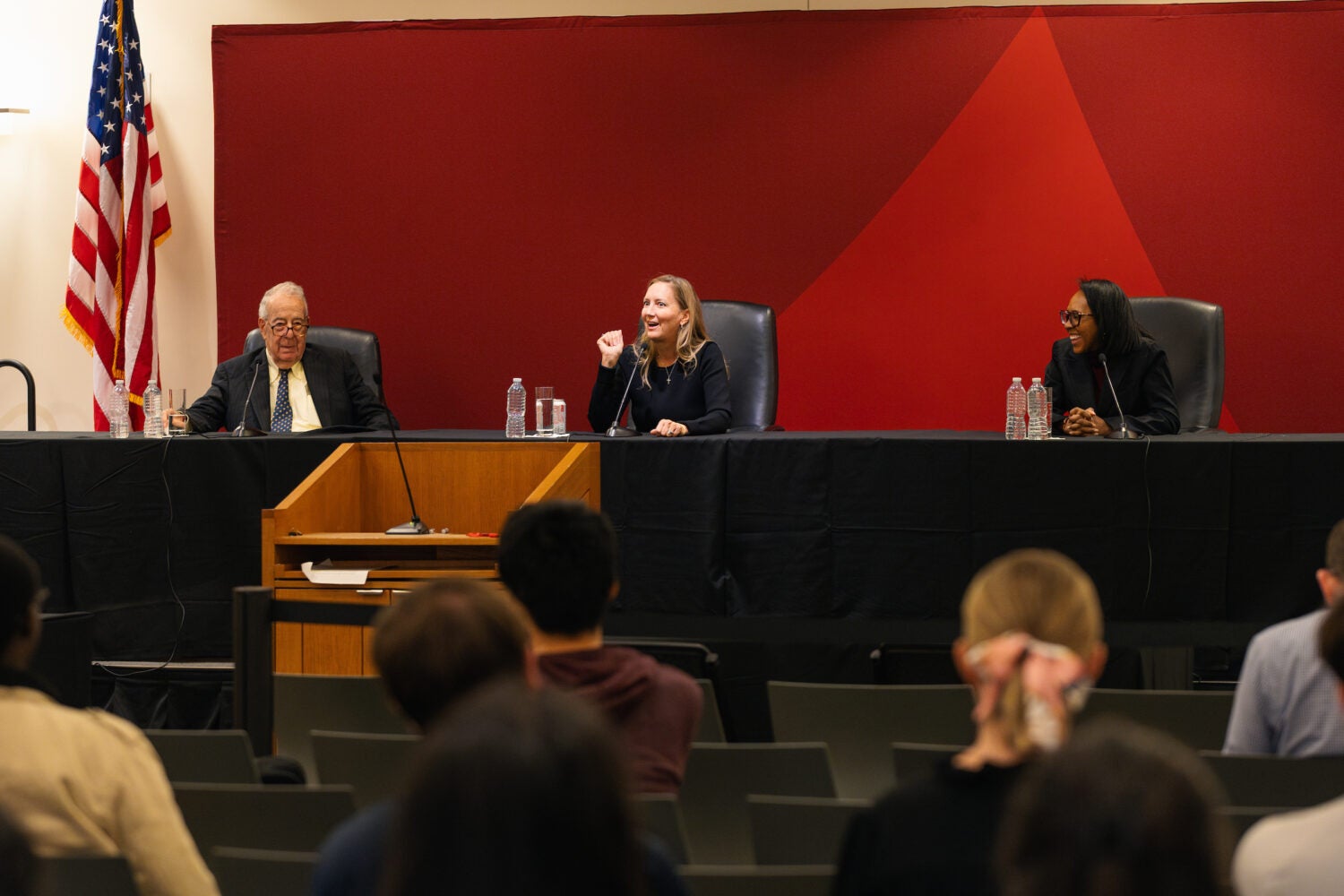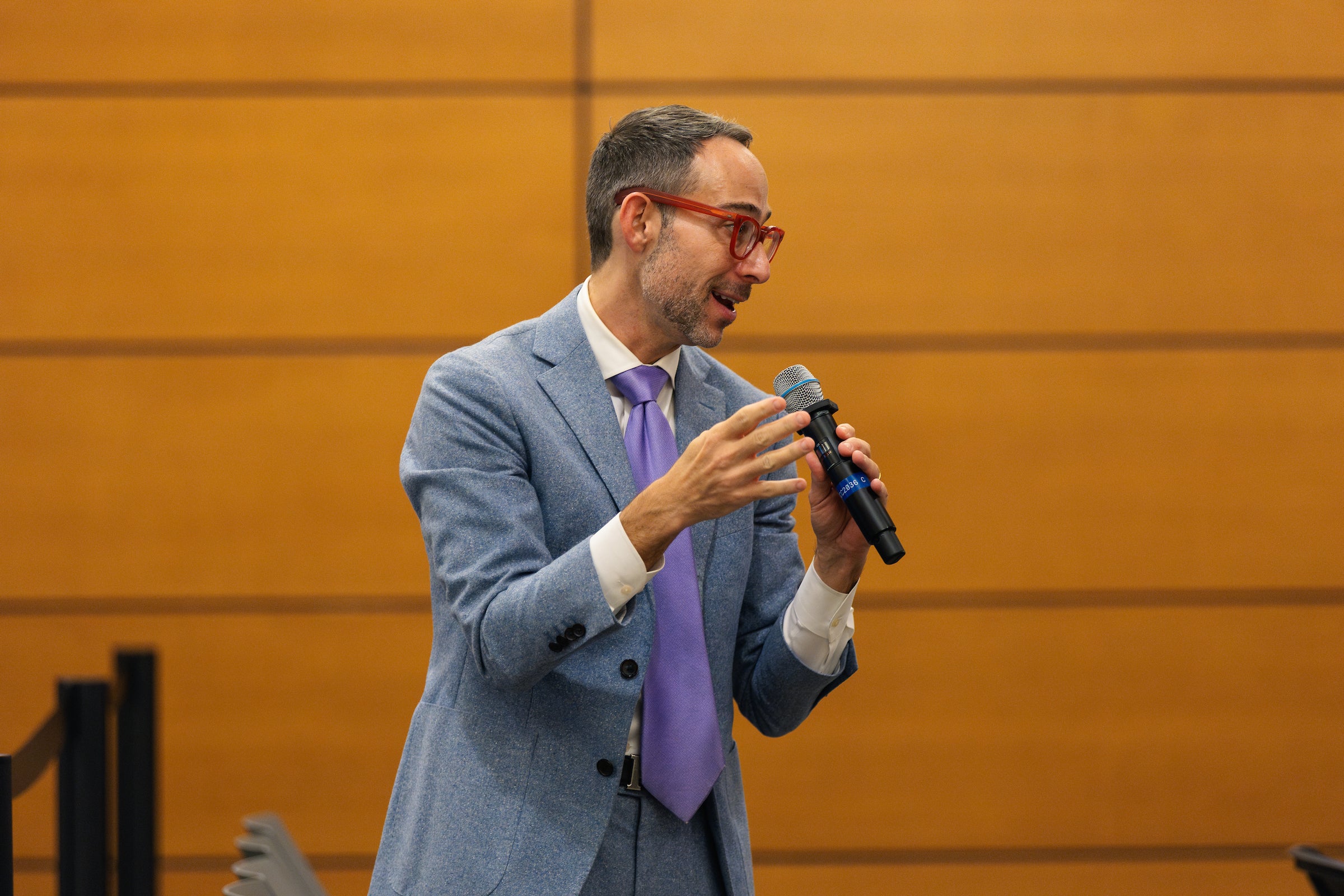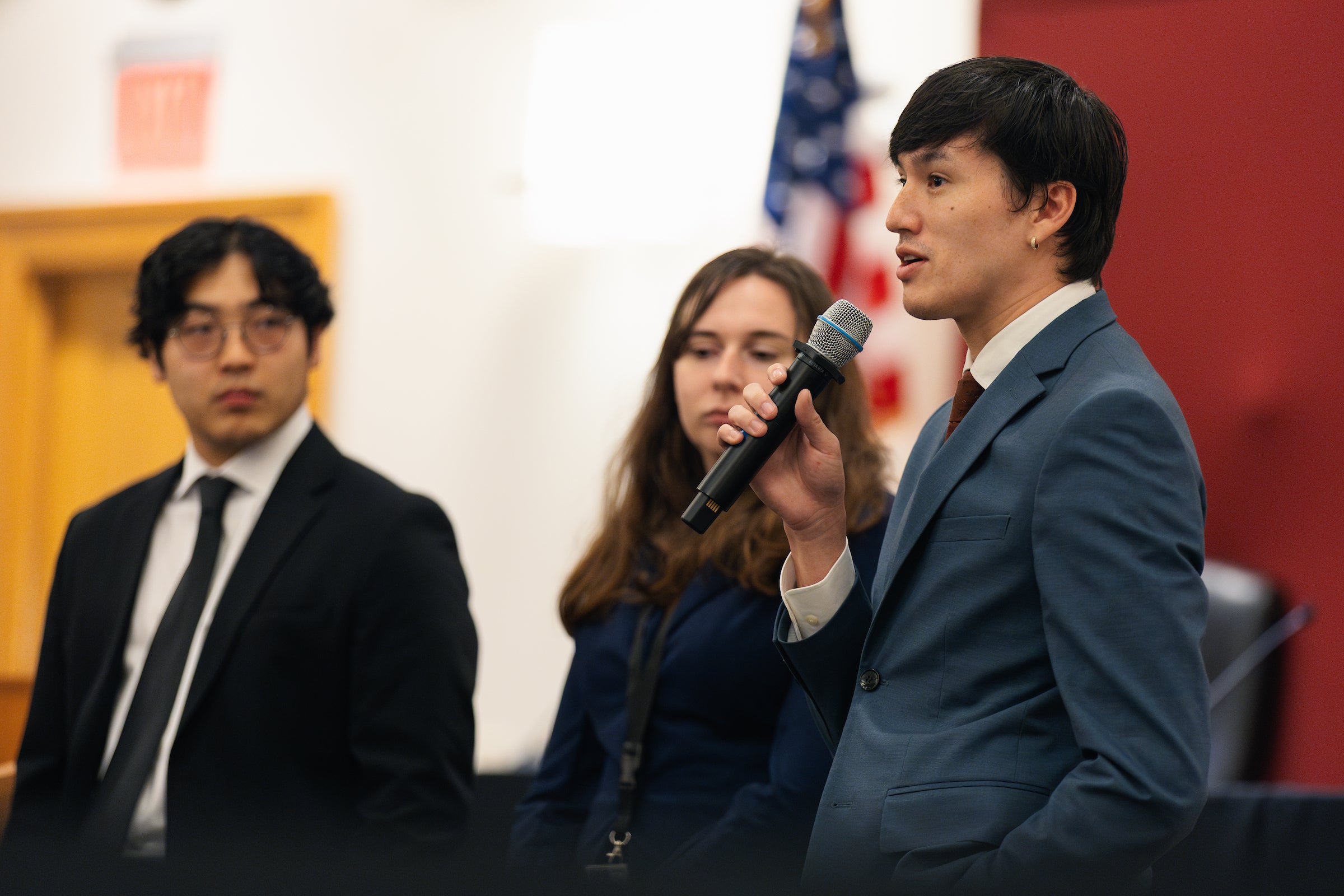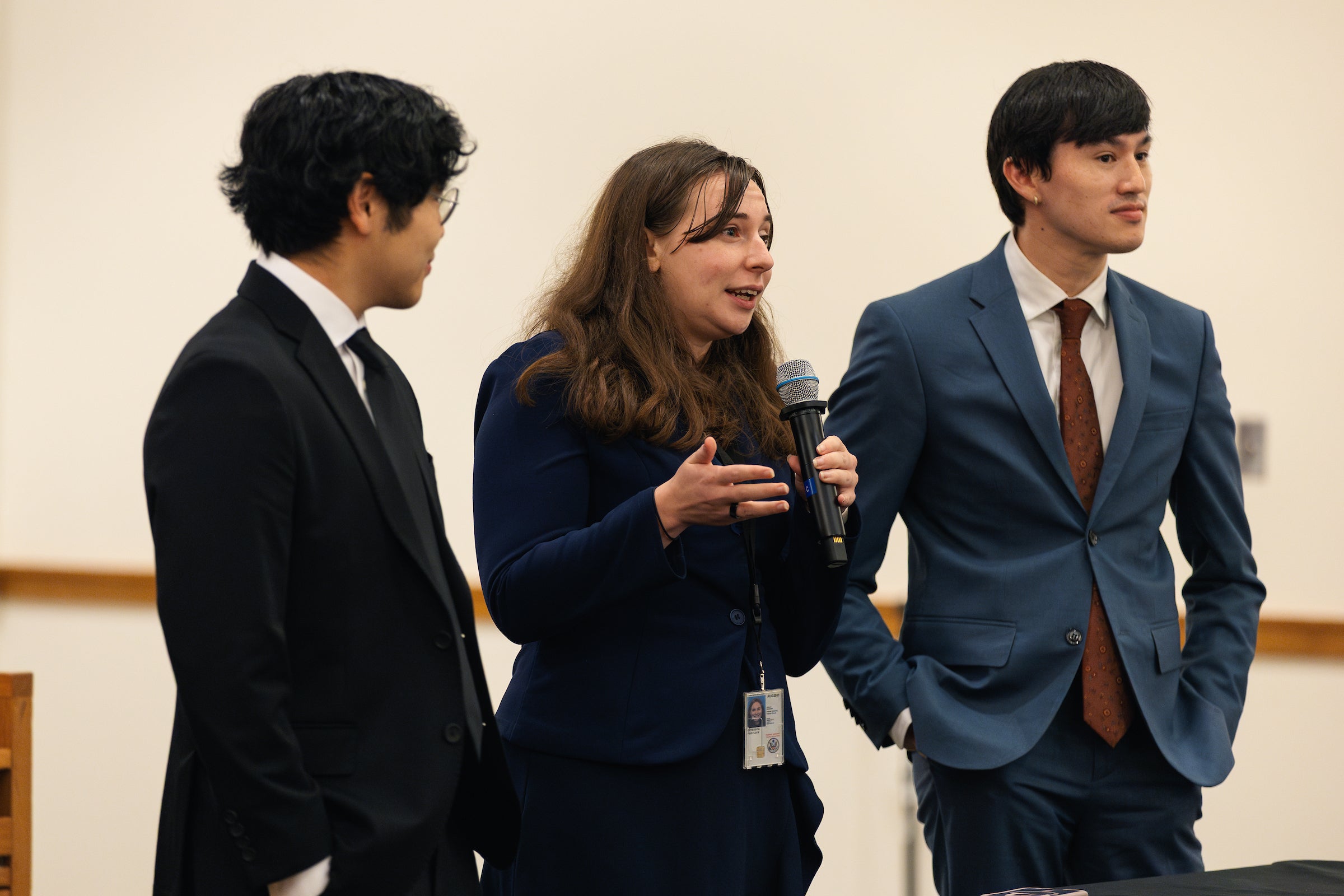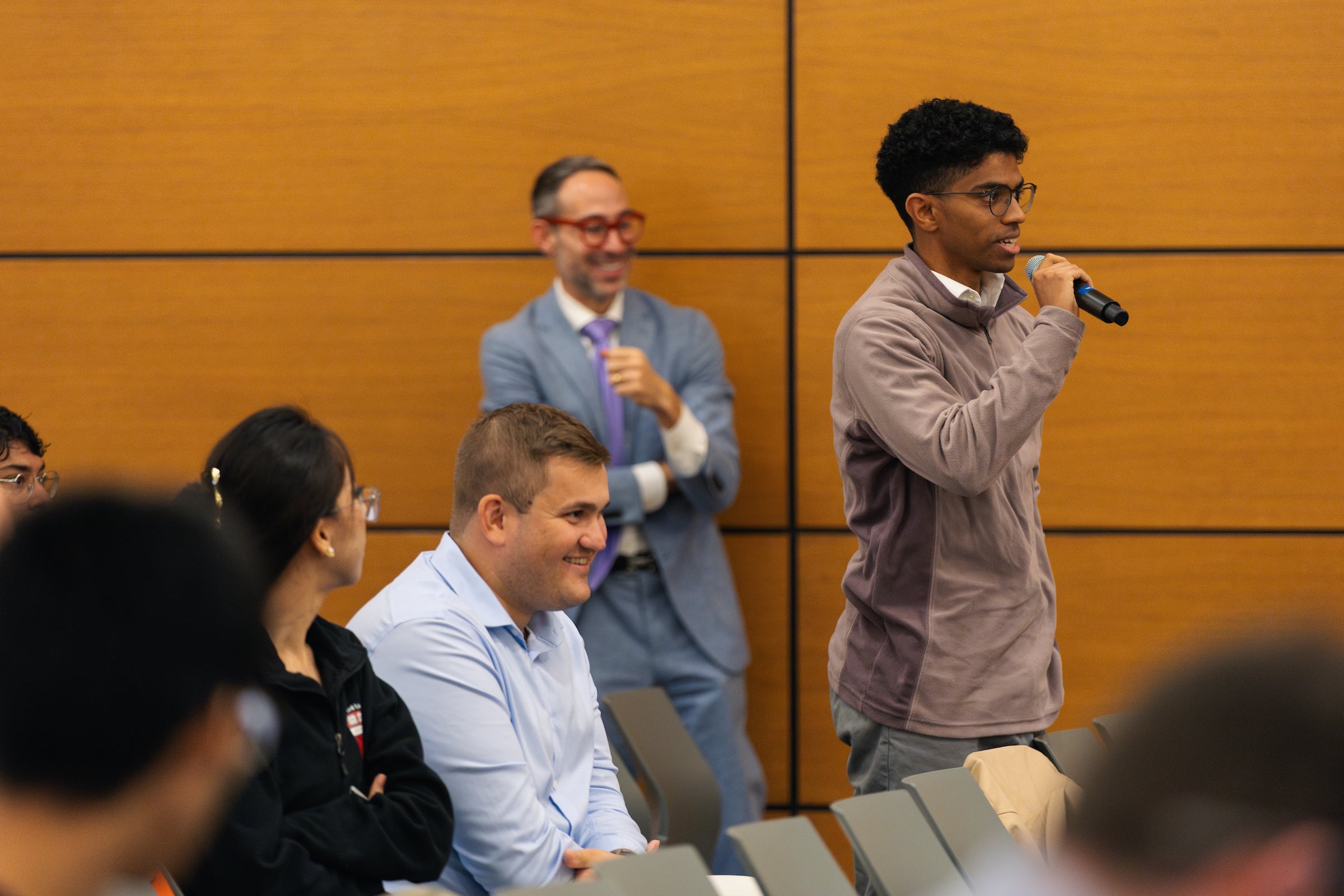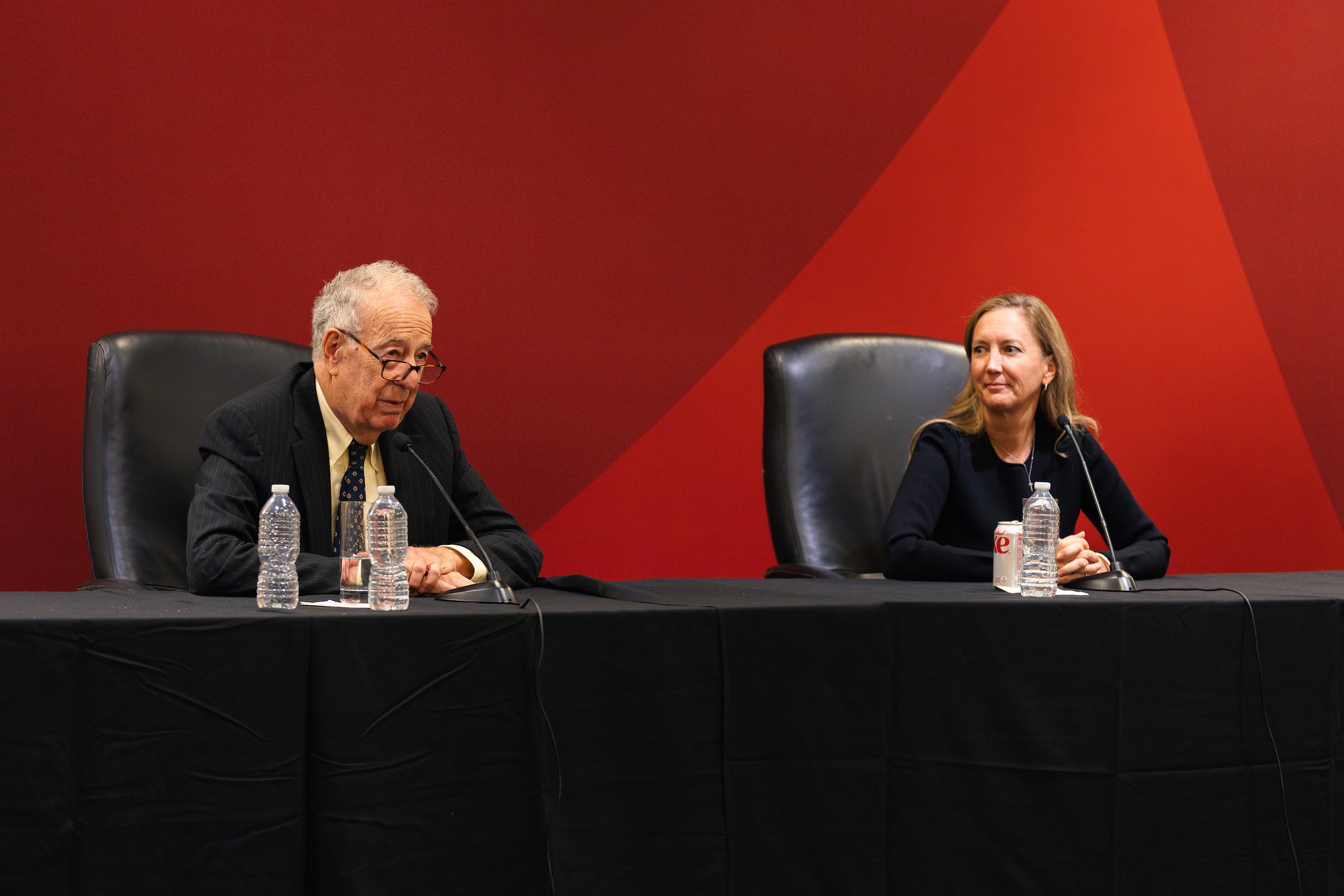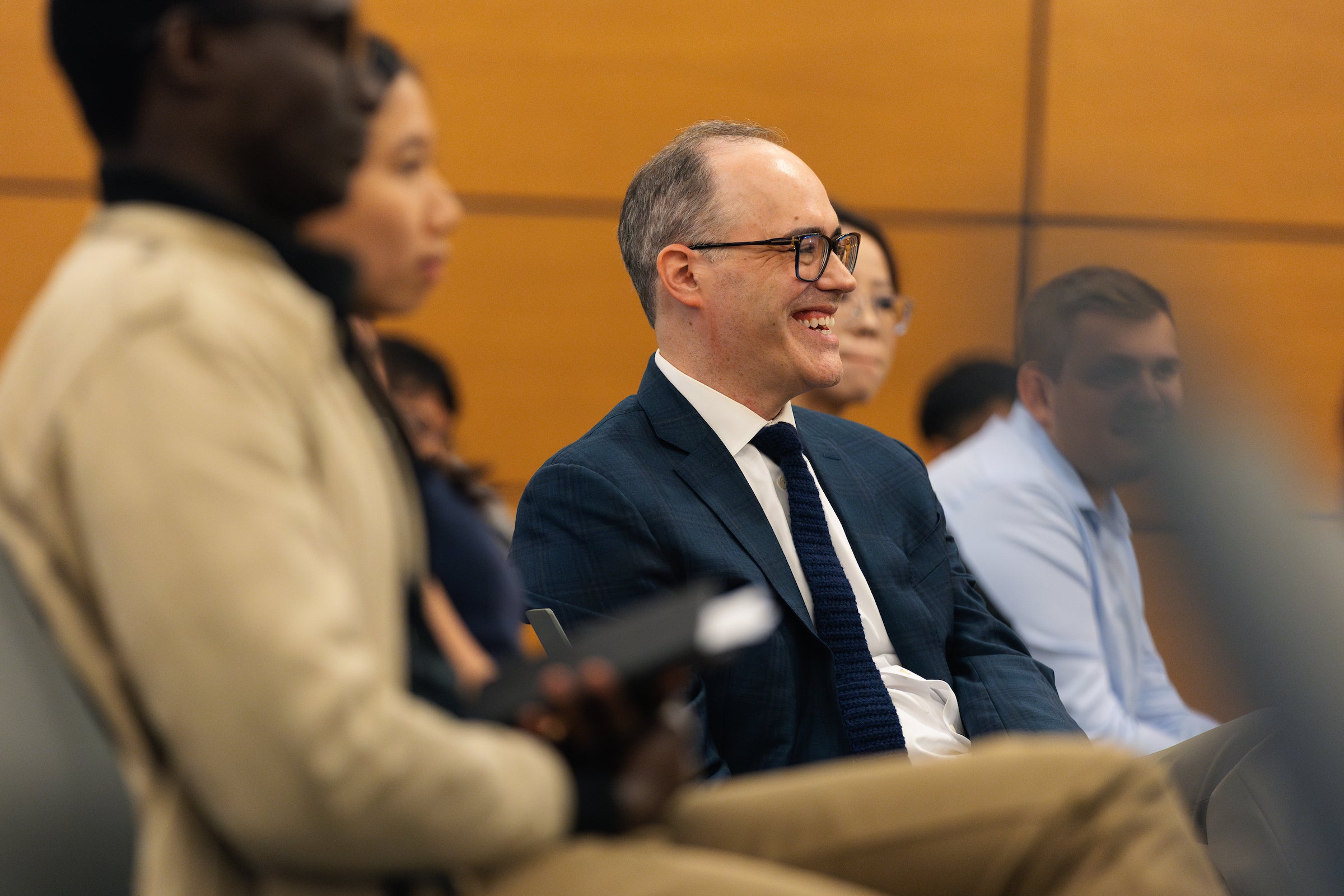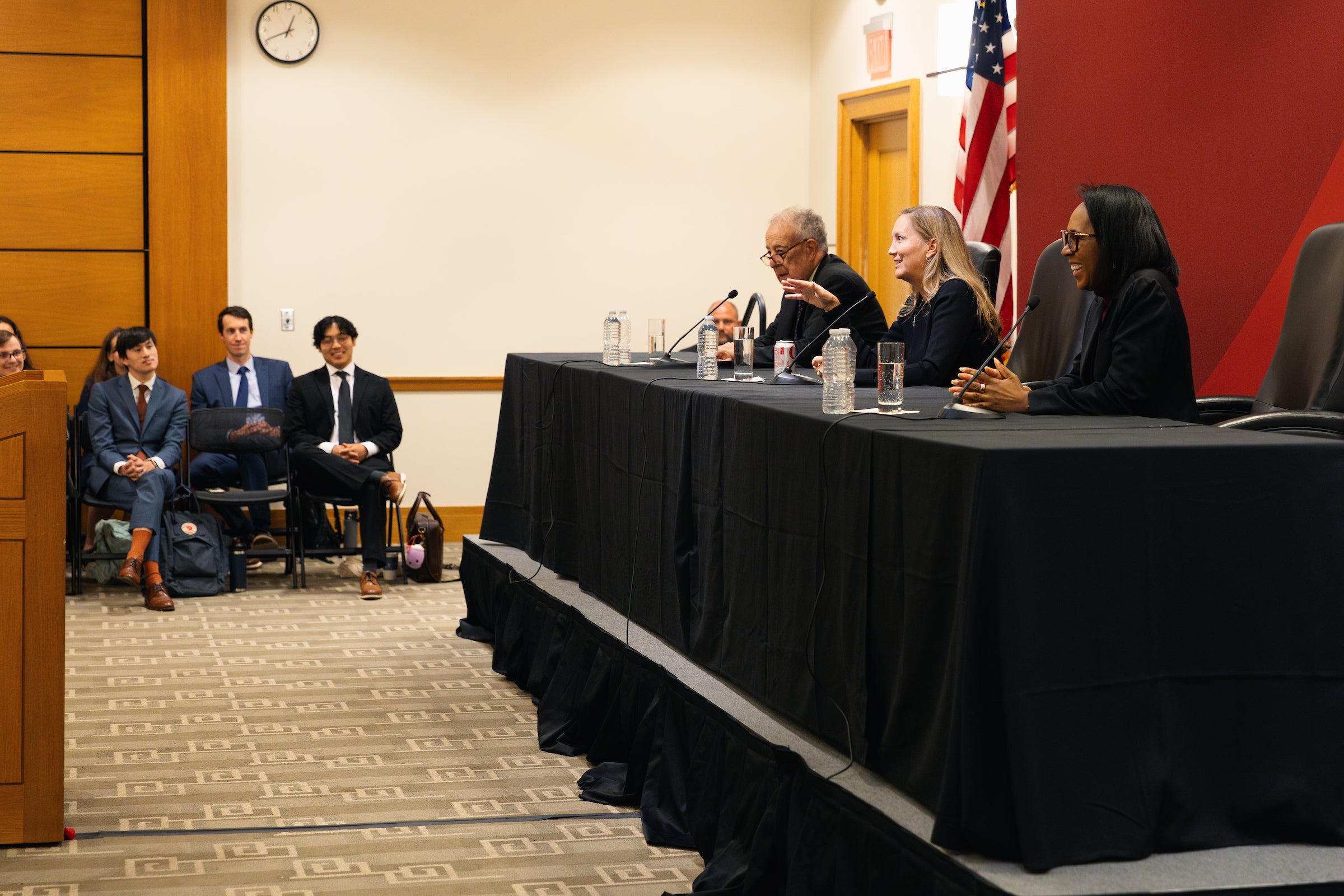On October 8, the U.S. Court of Appeals for the Federal Circuit heard live appellate arguments on select cases before an audience of Harvard Law students, faculty, and staff in Milstein East. The Federal Circuit holds exclusive appellate jurisdiction over a range of federal cases involving patents, trademarks, international trade, federal benefits, and other matters.
Federal judges presiding over the official proceedings included Chief Circuit Judge Kimberly Moore, Circuit Judge Timothy Dyk, and Circuit Judge Tiffany Cunningham ’01. The three-judge panel heard oral arguments on Secretary of Defense v. Pratt & Whitney, In Re X-Fab Semiconductor Foundries Gmbh, Wyoming Trust Co. v. U.S., and Definitive Holdings v. Powerteq.
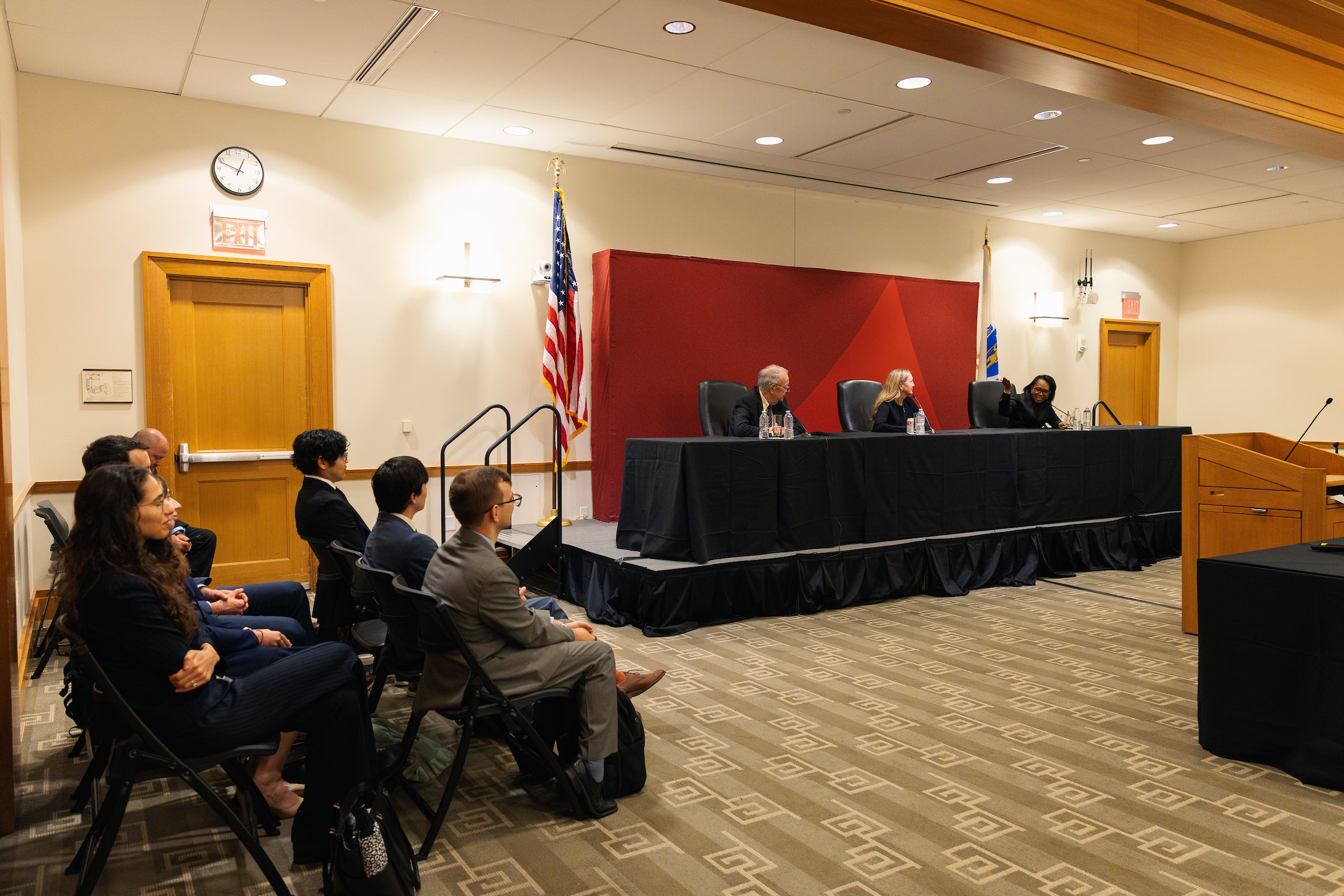
Once the oral arguments concluded, James A. Attwood and Leslie Williams Professor of Law Glenn Cohen ’03 moderated two Q&A sessions. The first featured a panel of six circuit judge clerks who discussed their respective professional backgrounds, their experiences in their current roles, and their advice for students interested in clerking.
The second Q&A session featured a panel of the three circuit judges who had just presided over the official proceedings: Chief Judge Moore, Judge Dyk, and Judge Cunningham. The judges fielded questions from students in attendance and Harvard Law’s Hieken Lecturer in Patent Law Louis Tompros ’03, who asked the judges what they look for in a clerk.
Chief Judge Moore, who assumed the duties of Chief Circuit Judge in May 2021, acknowledged that judges often vary greatly in their respective approaches and described her own efforts to improve morale among clerks and court staff. For instance, in her first year as Chief Judge, she directed her clerks and staff to don Halloween costumes to work.
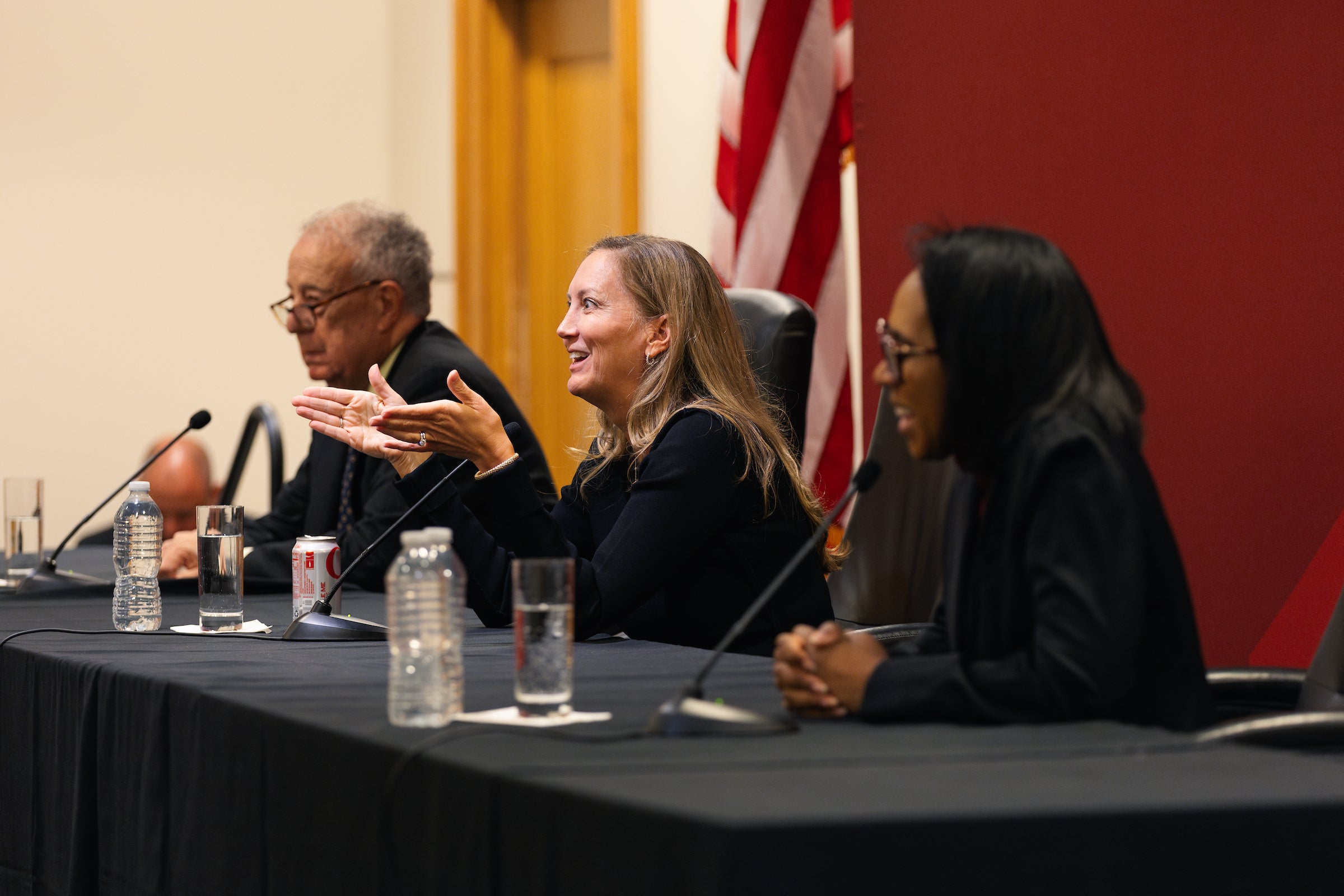
Judge Cunningham confidently affirmed the benefits of clerking having done so herself for her now-colleague Judge Dyk. She also explained that since she has expertise in complex patent law, she often looks for clerks who can help fill knowledge gaps in other subjects like computer science.
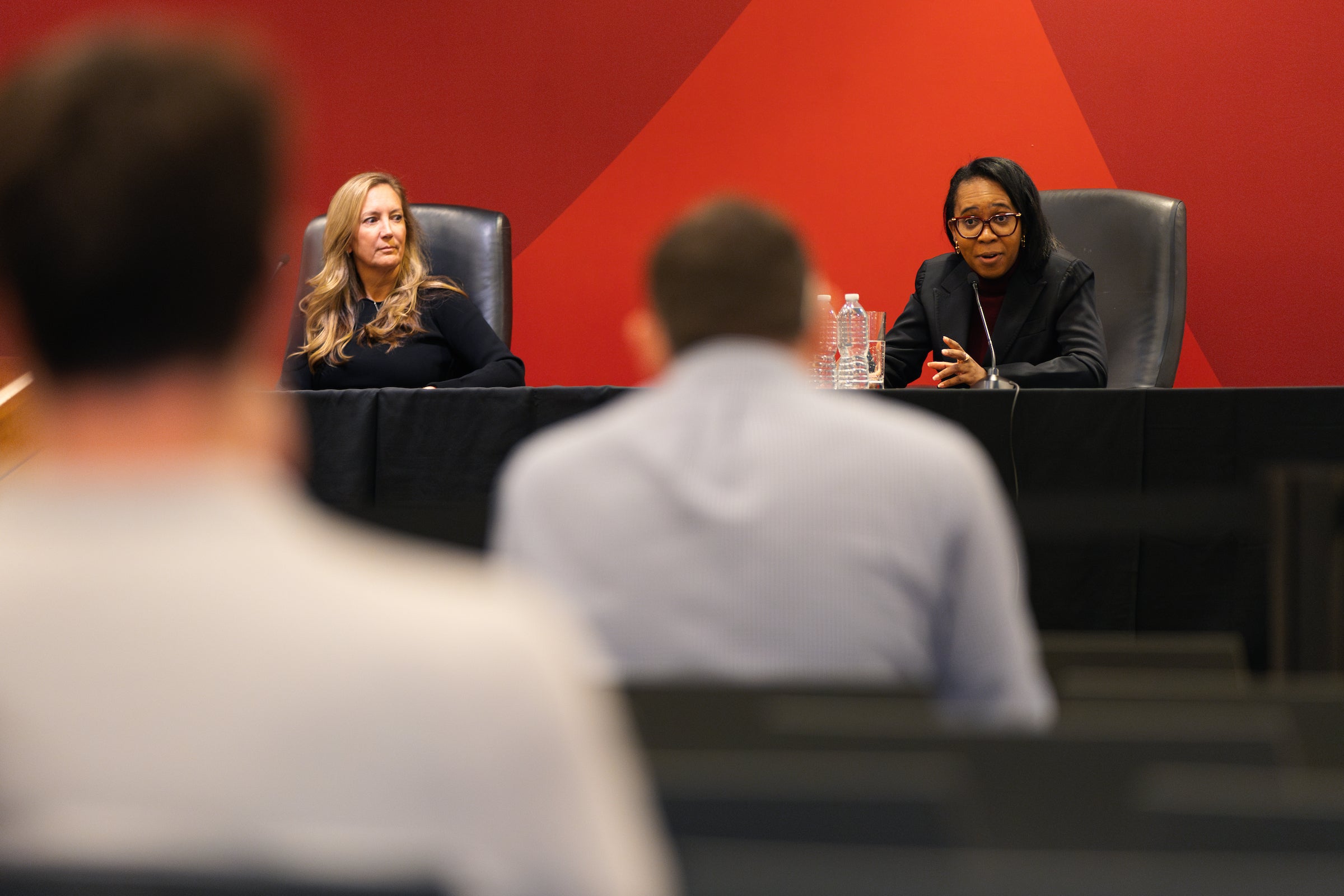
Judge Dyk agreed that choosing clerks is both an extremely important and difficult task. He mentioned personally paying special attention to the recommendations of past and current clerks when it comes to selecting staff.
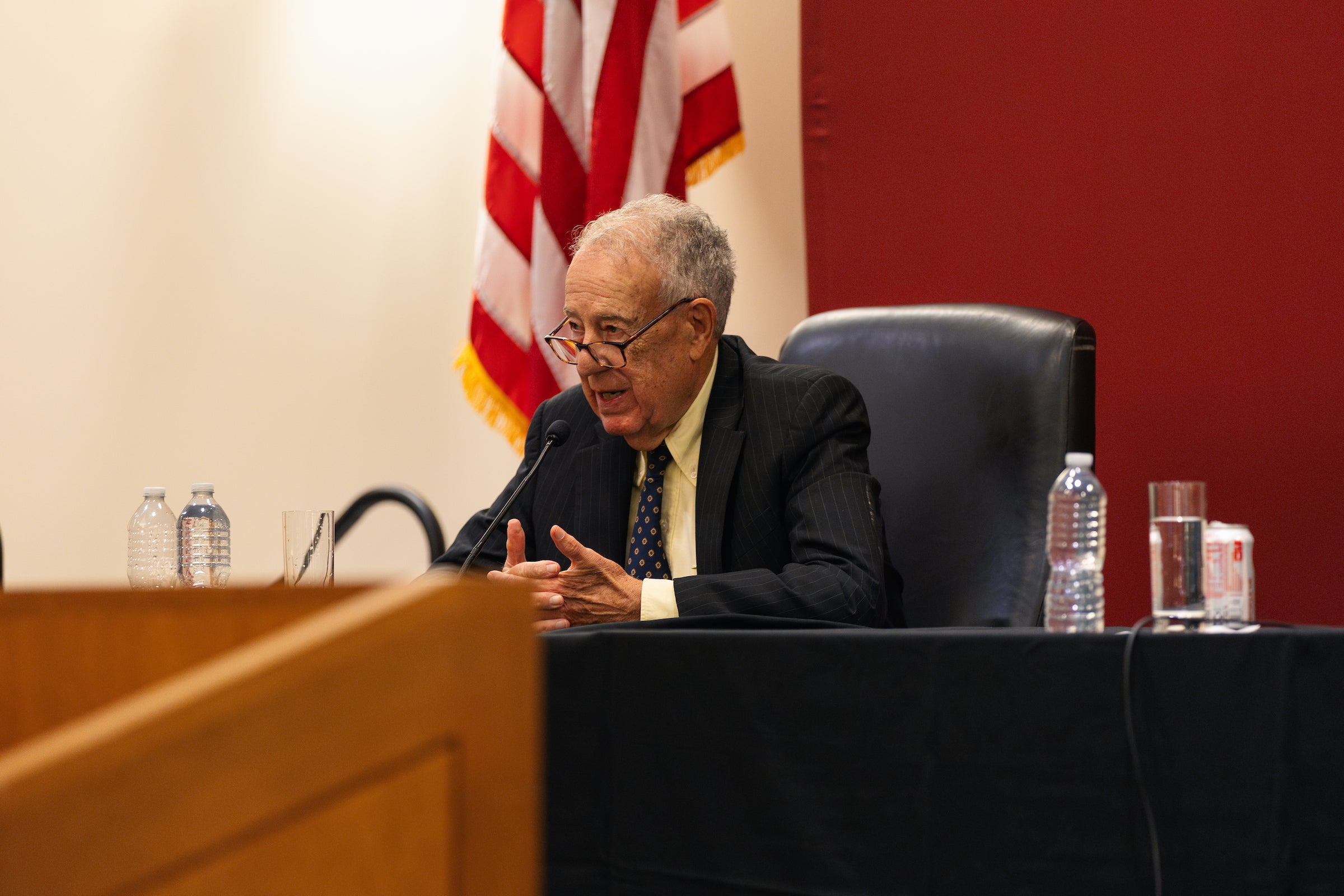
Want to stay up to date with Harvard Law Today? Sign up for our weekly newsletter.
